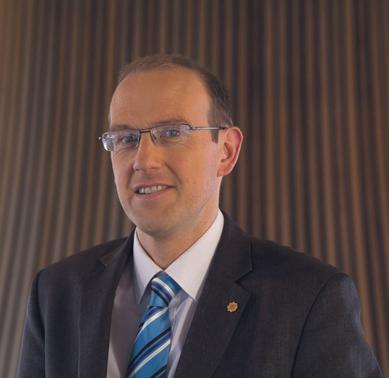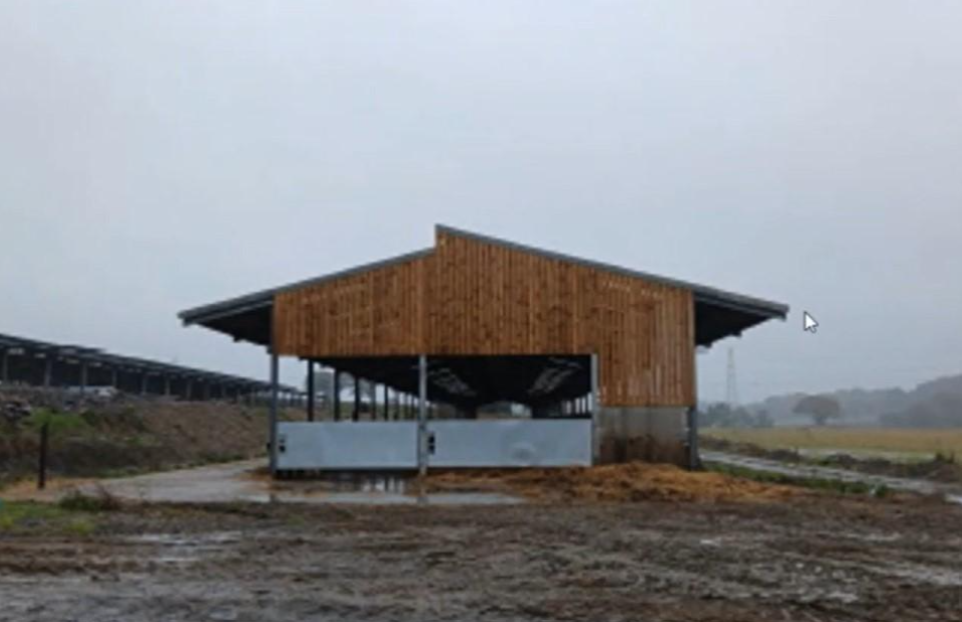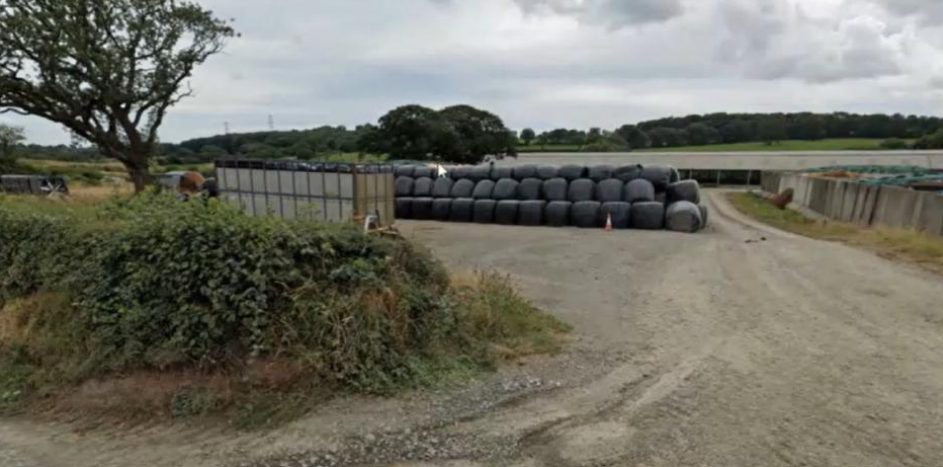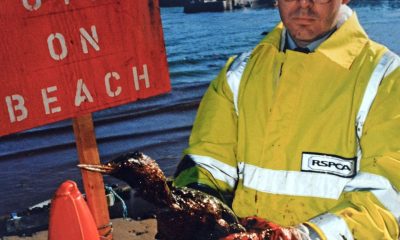Farming
Farming communities face ‘unprecedented changes’


Llyr Gruffydd: Shadow Minister
for Sustainable Communities,
Energy and Food.
A PERFECT storm is brewing over Welsh agriculture as financial, economic and bureaucratic burdens conspire to present unprecedented challenges for our farming communities, writes Llyr Gruffydd, Plaid Cymru Shadow Minister for Sustainable Communities, Energy and Food. Some of these burdens are out of the direct control of the Welsh Government but many of them are within its power, and indeed some are of its own making. Whilst Plaid Cymru at both Westminster and the European Parliament voted to protect Welsh farmers from cuts to the overall EU budget and subsequently a cut in CAP funding it was clear that Cameron, Clegg and Milliband had different ideas.
The resulting 10% cut to CAP for the 2013-2020 period set the tone for what will be a difficult new settlement for many. Whilst you could argue that this decision was beyond the influence of the Welsh Government the decision to transfer 15% away from direct payments to Welsh farmers was selfinflicted. Given the difficult period of change and economic challenges facing the industry Plaid Cymru had argued for a more modest transfer.
Taking well over a quarter of a billion pounds out of the pockets of Welsh farmers – the maximum allowed by the EU, will be a deeply damaging decision, particularly given that our competitors in other parts of the UK and the EU faced a much more palatable prospect – 12.5% in England, 9.5% in Scotland and 0% in Northern Ireland. Add to this the recently confirmed 7% drop in the exchange rate and you begin to see the scale of challenge facing many of our rural communities in the coming period.
One estimate suggests that a farmer who had received £10,000 in 2013 will receive around £7,879 in 2014 – a 21% drop. This of course comes on the back of the 44% drop in total farm incomes seen over 2013 and the continuing difficulties in farm gate prices for red meat and milk. Given these unprecedented challenges, it is crucial that the Deputy Minister allows farmers time to adapt and offers practical support in doing so. Plaid Cymru for example has consistently called for a dedicated funding scheme for farmers in Areas of Natural Constraint (ANC), particularly those farming in the moorlands who face the most challenging conditions.
Farming moorlands has become increasingly difficult and with much reduced CAP funding the decision by the Welsh Government not to act on our calls means for many, it will simply become unviable. Any business facing challenging economic times must be given as much flexibility as possible to respond to those challenges if it is to emerge the other side. Farming is no different. Government has a key role to play in this respect but at the moment progress is patchy and slow. The Working Smarter Agenda has moved this forward but these efforts must be seriously accelerated – starting with scrapping the six day standstill rule.
I accept that budgets have been squeezed but I’m not convinced that the Welsh Government is doing enough to seek out new additional support for the industry. Through our representation on the committee of the regions in Europe for example, Plaid Cymru has been making the case for the European Investment Bank to take rural aspects of regional economies into account and consider co-financing aspects of the Rural Development Programme.
Allowing programmes to draw down funding from the European Investment Bank to complement its funding through the Welsh Government’s RDP would allow that money to go much further – delivering many more positive outcomes for rural communities across Wales. Difficult times demand difficult decisions. And whilst the Welsh Government will no doubt argue that those are exactly the decisions they are making – the most difficult decision of all is to admit that sometimes you are wrong and that you must steer a different course.
Farming
Performance recording transforms hill flock at Llysfasi college farm

A WELSH college farm is successfully lambing triplet-bearing ewes outdoors on exposed hill ground after introducing genetic performance recording to strengthen maternal traits and flock resilience.
At Coleg Cambria Llysfasi, near Ruthin, a flock of 120 pure Welsh Mountain ewes grazes land rising between 1,000 and 1,300 feet above sea level, where winter conditions can be harsh and only the hardiest sheep thrive.
Since joining the Farming Connect Welsh Sheep Genetics Programme in 2023, the farm has used Estimated Breeding Values (EBVs) to target improvements in maternal ability, growth rates and overall performance. Although genetic gains are often gradual, staff say results are already clear just three years into the scheme.
Historically, ewes carrying triplets were lambed indoors, adding labour and cost. Now, improved maternal strength means they can lamb outside with minimal intervention.

“The ewes are holding their body condition better, we haven’t had any problems lambing them outdoors and they keep their lambs very well,” said shepherd Alun Jones. “We’re seeing fewer losses and far less hands-on work. In the 2025 season we only assisted two ewes out of 120.”
The wider system runs 600 ewes, including Welsh Mountains crossed with Abertex to produce mule ewe lambs, and mules crossed with Beltex or Texel rams for finishing lamb production. Plans to phase out the Welsh Mountain breed were reversed after recognising its value for hardiness and mothering ability in upland conditions.
Performance recording began in autumn 2023 with tissue samples, body condition scoring and regular weighing to create a reliable data baseline.
“Before, we were judging by eye,” said Mr Jones. “Now we’ve got hard evidence to guide decisions.”
By identifying and removing the bottom 20 per cent of performers, the flock’s overall index has risen from £13 to £16.24 — a significant lift in commercial potential.
Lambs are currently creep-fed and sold from November to January at 38–42kg liveweight, with a longer-term aim to finish earlier and reduce concentrate use.
Farm manager Dewi Jones said the data has also changed how they buy rams.
“When you’re at a sale and you’ve got the indexes in front of you, you can draw a red line through the animals that don’t stack up. Type still matters, but figures matter just as much. Data gives you confidence in your choices.”
Some home-bred ram lambs are now matching the performance of sale-topping sires, creating opportunities to retain or market their own breeding stock.
Mr Jones believes the sheep sector could benefit from taking a more data-driven approach, similar to dairying.
“If we don’t measure, we can’t improve. Recording takes time, but the rewards are there. It’s about working smarter and building a more resilient flock for the future.”
Shepherd Alun Jones with Welsh Mountain ewes at Llysfasi.
Performance recording and weighing form a key part of the improvement programme.
Business
Langdon Mill Farm Pembrokeshire expansion signed off

THE FINAL sign-off for plans for a heifer accommodation building and associated works at one of Pembrokeshire’s largest dairy farms, with a milking herd of 2,000 cows, have been given the go-ahead.
In an application backed by councillors at the December meeting of Pembrokeshire County Council’s planning committee, Hugh James of Langdon Mill Farms Ltd sought permission for a 160-metre-long heifer accommodation building, a slurry separation/dewatering building and associated yard areas at 1,215-hectare Langdon Mill Farm, near Jeffreyston, Kilgetty.
A supporting statement through agent Reading Agricultural Consultants said: “The holding currently has a milking herd of approximately 2,000 cows, which are housed indoors for the majority of the year, with dry cows and heifers grazed outdoors when weather and soil conditions permit.

“There has been significant investment in buildings and infrastructure at the farm over the last decade in respect of cattle accommodation, slurry storage, milking facilities, Anaerobic Digestion (AD) plant, feed storage. Recently a calf and weaned calf accommodation buildings were approved by Pembrokeshire County Council with construction almost complete.
“The unit is efficient, achieving yields of more than 10,000 litres/cow/year, with cows being milked three times/day in the 60-point rotary parlour. Langdon Mill Farm currently directly employs 21 full-time, and three part-time staff. Of these, four live on site in the two dwellings opposite the farm, with the remaining staff living in the locality.”
It added: “Although the unit has previously purchased heifers to aid expansion, the farm now breeds most of its own replacements to improve genetics and to minimise the ongoing threat of bovine tuberculosis (bTB).”
It said the proposed building would be used by heifers between the ages of 7-22 months, the siting “directly influenced by the adjacent calf and weaned calf buildings, with livestock being moved from one building to the next as they get older”.
Members unanimously supported the recommendation of approval, giving delegated powers to the interim head of planning to approve the application following the final approval of a habitats regulations assessment.
An officer report published yesterday, February 5, said Natural Resources Wales confirmed it had received the assessment, and, “in consideration of the mitigation measures detailed and on the understanding there is no increase in stock, they agree with the LPA’s conclusion that an adverse effect upon the integrity of the SAC [Special Areas of Conservation] sites can be ruled out”.
Formal delegated approval has now been granted by officers.
Farming
Forgotten meats tipped as future ‘superfood’ comeback

SO-CALLED “forgotten meats” such as liver, heart and kidneys could soon find their way back onto dinner plates, with scientists suggesting they may offer a cheap, sustainable and highly nutritious alternative to modern ultra-processed foods.
Offal was once a staple of everyday diets across the UK, particularly in working-class households, but has steadily fallen out of favour in recent decades despite being rich in iron, protein and essential vitamins.
Now researchers at Aberystwyth University are working with Hybu Cig Cymru (HCC) to understand why demand has dropped and whether these cuts could be repositioned as affordable “superfoods”.
Scientists say that when nutrient-dense parts of the animal go uneaten, valuable food is effectively wasted.
Dr Siân Mackintosh, from the university’s Institute of Biological, Environmental and Rural Sciences (IBERS), said these meats could play an important role in healthier and more sustainable diets.
“Where they are not being used, these nutrient-dense ‘forgotten meats’ represent a significant loss of nutrients from our food chain,” she said. “Incorporating them as part of a balanced diet could support human health while also reducing food waste and improving environmental outcomes.”
Taste tests win over public
To test public attitudes, HCC staff have been running tasting sessions at major agricultural events including the Royal Welsh Show and the Winter Fair in Llanelwedd.
Visitors sampled dishes made with Welsh lamb’s liver, including stroganoff, traditional faggots and pâté. Organisers say many people were surprised by the flavour and keen to learn how to cook them at home.
Dr Eleri Thomas, Future Policy and Project Development Executive at HCC, said interest was stronger than expected.
“We believe there is significant potential for these forgotten meats to be incorporated back into our diets,” she said. “Consumers liked the flavour and wanted recipes and cooking tips, as well as understanding the nutritional value.”
She added that making better use of undervalued cuts could improve sustainability across the meat supply chain while creating new marketing opportunities for Welsh producers.
Part of wider sustainability project
The work forms part of the SMART Nutrient Cymru project, funded through the Welsh Government’s innovation support scheme.
Project lead Dr Christina Marley said the aim is to capture nutrients currently being lost across the agri-food system.
Alongside the collaboration with HCC, the team has also partnered with Dŵr Cymru Welsh Water on land management to protect rivers, and with British Wool to explore new uses for fleece by-products.
IBERS itself is one of eight UK research institutes strategically supported by Biotechnology and Biological Sciences Research Council, providing national expertise in grassland and plant breeding science.
Researchers say that with food prices rising and pressure growing to reduce waste, traditional nose-to-tail eating could offer both economic and environmental benefits.
Image: Welsh lamb faggots (Pic: HCC)
-

 Health6 days ago
Health6 days agoHealth board targets rise in steroid and gym drug use across west Wales
-

 Health15 hours ago
Health15 hours agoHealth Board to decide future of nine key services at two-day meeting
-

 Crime7 days ago
Crime7 days agoTeacher injured and teenager arrested for attempted murder at Milford Haven School
-

 Business3 days ago
Business3 days agoComputer Solutions Wales under fire from customers
-

 Business5 days ago
Business5 days agoSix-figure negligence victory leaves retired builder trapped in divorce limbo
-

 News7 days ago
News7 days agoReform appoints Dan Thomas to lead party in Wales
-

 Sport7 days ago
Sport7 days agoWales name squad for Six Nations opener against England
-

 News7 days ago
News7 days agoAnother Senedd member defects to Reform as Lib Dem MP hits out


























